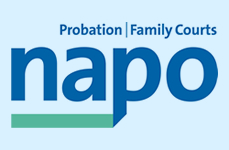Napo sits in the Probation Qualifications Assurance Board (PQAB). This Board oversees the training arrangements in Probation. It operates under NOMS and does not include any representation from CRCs. This is a brief report following the most recent meeting of the PQAB at the beginning of this month.
A learner census summary can be found here. From Cohort One who started in October 2014, 249 moved on to Stage 2 of the course in April, with 9 being granted extensions. 96% of learners in this cohort have met their learning milestones.
Most learners have remained in their originating (NPS) Division. Only between 10 and 15 were offered another Division because they couldn’t be accommodated in their originating Division. PQAB take the view that learners should stay where they start their training through to completion – although exceptional circumstances may apply.
Retention rates in each cohort are generally very good – see section 2
Learners in NPS are on permanent PSO contracts, so if they drop out from training, they can be offered alternative PSO posts if these are available
The following problems for new starters have been highlighted
- Vetting
- Contracts & pay
- Essential training
- Arrangements with CRCs - variable. Some CRCs less interested in providing placements
- Desk space
Lessons are being learned and efforts made to rectify problems.
NPS Divisional Training Managers (DTMs) have to engage with their CRC counterparts regarding placements for learners. The success of this is probably variable and will not have been assisted by the fact that not all DTMs and their teams have been in place since the outset of the NPS/CRC split last June. There has also been a rapid turnover of senior HR managers in some CRCs which has not aided communication.
Napo has expressed concern that vetting had not been completed on all learners prior to their starting the course and that having this uncertainty hanging over them, post commencement, was unhelpful and might interfere with their ability to learn. It can also compromise their ability to demonstrate learning if they are unable to fully access and use NPS/CRC systems.
There have been some technology issues for learners with AT issues. This has been problematic in the NPS but better in their interface with Higher Education Institutions.
Equality & Diversity: the profile of the NPS should reflect the communities it serves. Recruitment of BAME staff has scope for improvement. The gender imbalance also needs to be addressed because there is a high proportion of female applicants.
All decisions on learner progression are made by a PQAB sub-committee and not locally.
National Learner Agreements have been discussed in the PQAB – to aid and identify what should be expected of and by new learners. This is still under development but it is hoped that it will be issued to PTAs soon, but more as guidance rather than as ‘agreements’ – this in recognition of the fact that agreements cannot be operated retrospectively (after training has already started)
For legacy learners (those who commenced training before ‘Cohort One’ ) there is no restriction on where they can take work post-qualification.
It is undoubtedly the case that the (relatively) large numbers of learners currently being put through the system is creating its own stresses. The numbers reflect a recognition of the need to catch-up and address a growing shortage of qualified Probation Officers, coupled with a need to complete qualification for these learners before the current training arrangements come to an end next year.
Comments and queries to: mmcclelland@napo.org.uk
